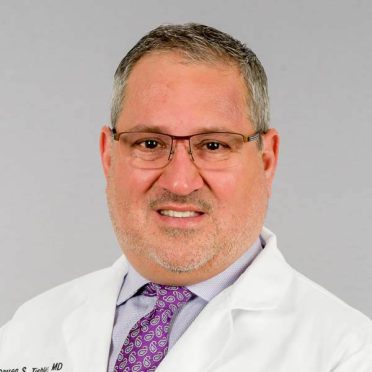While bears emerge from hibernation thinner, most Americans, after isolating during a pandemic and hunkering down through winter are emerging, well, chunkier.
According to a Harris poll for the American Psychological Association, 42 percent of Americans gained an average of 29 pounds during the pandemic. Another 18 percent unintentionally lost an average of 26 pounds.
The news didn’t surprise Dr. Darren Tischler, director of metabolic and bariatric surgery for Hartford HealthCare.
“There are two areas where we’ve seen an impact — the loss of activity with so many things being canceled and closed, and an increased stress, anxiety, loss of sleep, all of which contribute to weight gain,” said Dr. Tischler, who noted that people traded daily commutes mere steps to their remote work station when offices closed.
The Harris poll noted that essential workers topped both lists — gaining the most and losing the most, typically from stress. Parents gained, with more than half adding an average of 36 pounds.
In addition, the pollsters found the undesired weight changes varied by generation as such:
- Gen Z (age 18-25): 22 percent reported an average loss of 22 pounds, while 52 percent reported gaining about 28 pounds.
- Millennials (age 25-42): 22 percent also reported average losses of 26 pounds. Almost half (48 percent) reported gaining an average of 41 pounds.
- Gen X (age 43-56): 17 percent reported losing an average of 24 pounds, while 41 percent reported a weight gain. The average gain was 21 pounds.
- Baby Boomers (age 57-75): 14 percent reported losses averaging 26 pounds. Another 37 percent reported gains, an average of 16 pounds.
- Older adults (age 75 and over): just 5 percent reported a loss and 25 percent a gain. There were not enough respondents in this category to generate averages.
With such sobering statistics, Dr. Tischler maintained it’s important that people address weight issues and find new ways to be active. Walks are simple and allows people to stay physically distant while exercising and enjoying fresh air. Every Saturday, he walks on Facebook Live with members of an online weight loss support group that has more than 1,000 people.
“We’re working to find new ways to engage people keep them in tuned to their weight,” he said, adding that obesity is connected with a host of lethal health problems such as high blood pressure and diabetes.
The Hartford HealthCare program includes surgical and non-surgical options for people seeking to lose weight. The program includes a team of psychologists, nutritionists, cardiologists and exercise physiologists who help patients reach their weight loss goals.
For more information on weight loss, go to www.whatcanyougain.org.


